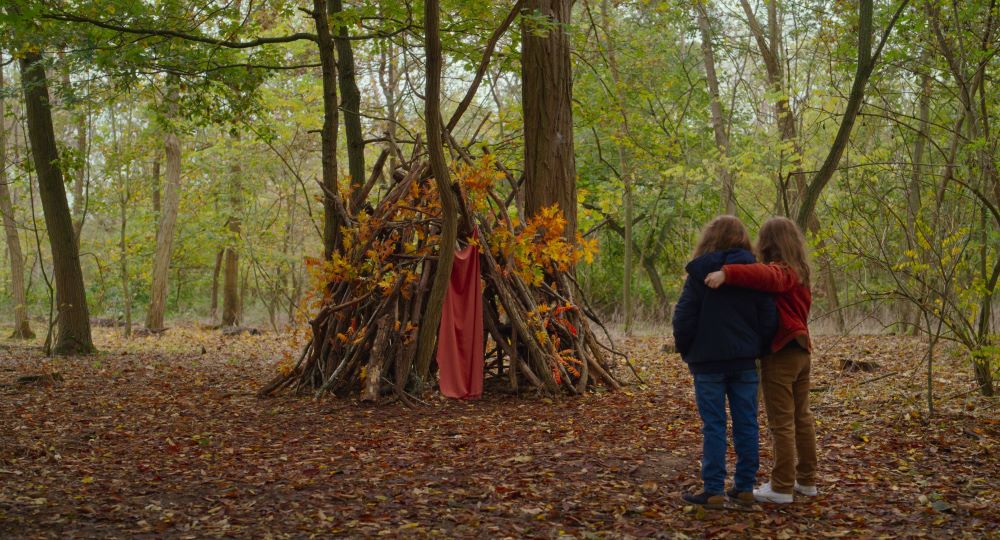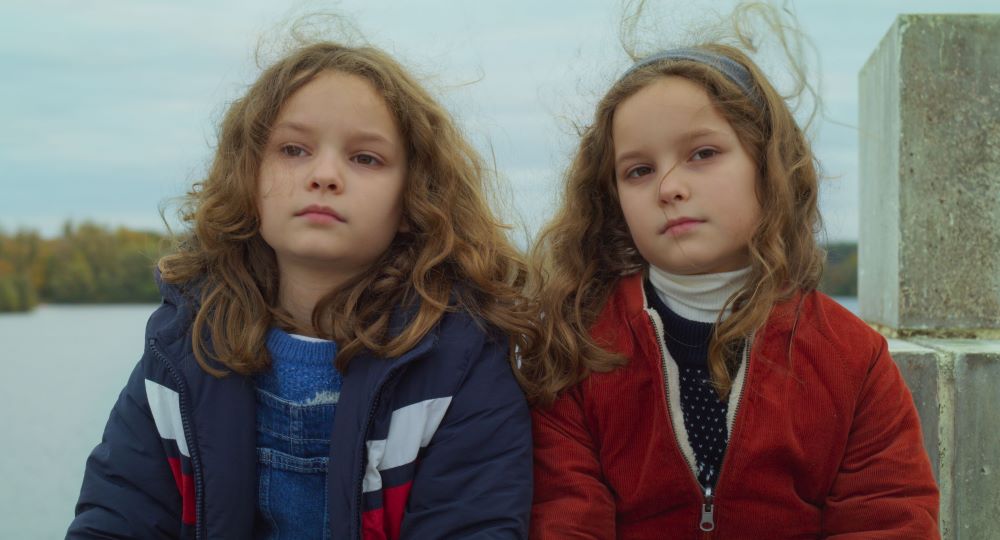
Céline Sciamma works magic in Petite Maman, a film that returns to the realm of childhood. Bold in its simplicity, like all good fairytales, it it explores the essentials – love, friendship, loneliness, the distance between parents and children, and the origins of sorrow. 8-year-old Nelly (Joséphine Sanz) walks along the corridor of a retirement home, stopping at each door to say goodbye, before coming to the room that belonged to her grandmother. As her mother packs up the room, Nelly asks if she can keep her grandmother’s cane. Something to hold on to, to lean on.
Later, in the car with her mother Marion (Nina Meurisse), Nelly further attends to practical needs, asking if it’s aperitif time, and when given consent, opening a bag of snacks. She reaches out to feed her mother, and after a few salty bites, offers up a sip from her juice box. Her mother smiles, a knowing smile, a smile that defines the boundaries between the child and the woman.
The family is on their way to the grandmother’s home in the country, where Marion grew up, to organize and close it up. Nelly is attentive and curious; her gaze reflects her awareness of every turn and nuance in her parents’ conversation. She is eager to explore the terrain of her mother’s childhood, and rushes outdoors. As she wanders through woods dappled with fall colors, the sound of dry leaves underfoot and the wind rustling the leaves on the trees call up a feeling of childhood, with its timelessness and sense of discovery. Watching Nelly, it becomes apparent that she is accustomed to being on her own, independent and resourceful, finding her own amusement. Yet when her mother comments “You always ask questions at bedtime,” Nelly responds, “That’s when I see you” – revealing the rift between them.
Sciamma is the rare writer/director who remains open to the experience of childhood, depicting with honesty its joys, pains, and capacity for empathy and understanding. Internationally acclaimed for Portrait of a Lady on Fire (2019), her previous films are intimate and sensitive explorations of coming of age, gender identity and sexual identity in teenage girls (Water Lilies 2007, Girlhood 2014) and ten-year-olds (Tomboy 2014). Petite Maman takes the viewer on a journey to an even earlier time, an age when one is more child than girl or boy. At 8, the relationship with parents is not only central, but all-encompassing, as parents in effect define the world of a child. There is an inevitable distance between parent and child, but what if that distance could just disappear, if only for a few days?

When we come into the world, it is utterly new to us, and from that perspective, anything and everything is possible. It takes a few years to even begin to internalize a framework for what can and cannot be, what is real and what is imaginary. There is a magical interval in our lives when the imaginary is real – and that is where Sciamma takes us in Petite Maman.
Petite Maman
France/2021/72 min/French with English and Hebrew subtitles
Written and directed by Céline Sciamma; Cinematography: Claire Mathon; Editing: Julien Lachery; Music: Jean-Baptiste de Laubier; Cast: Joséphine Sanz, Gabrielle Sanz, Nina Meurisse, Stéphane Varupenne, Margot Abascal





